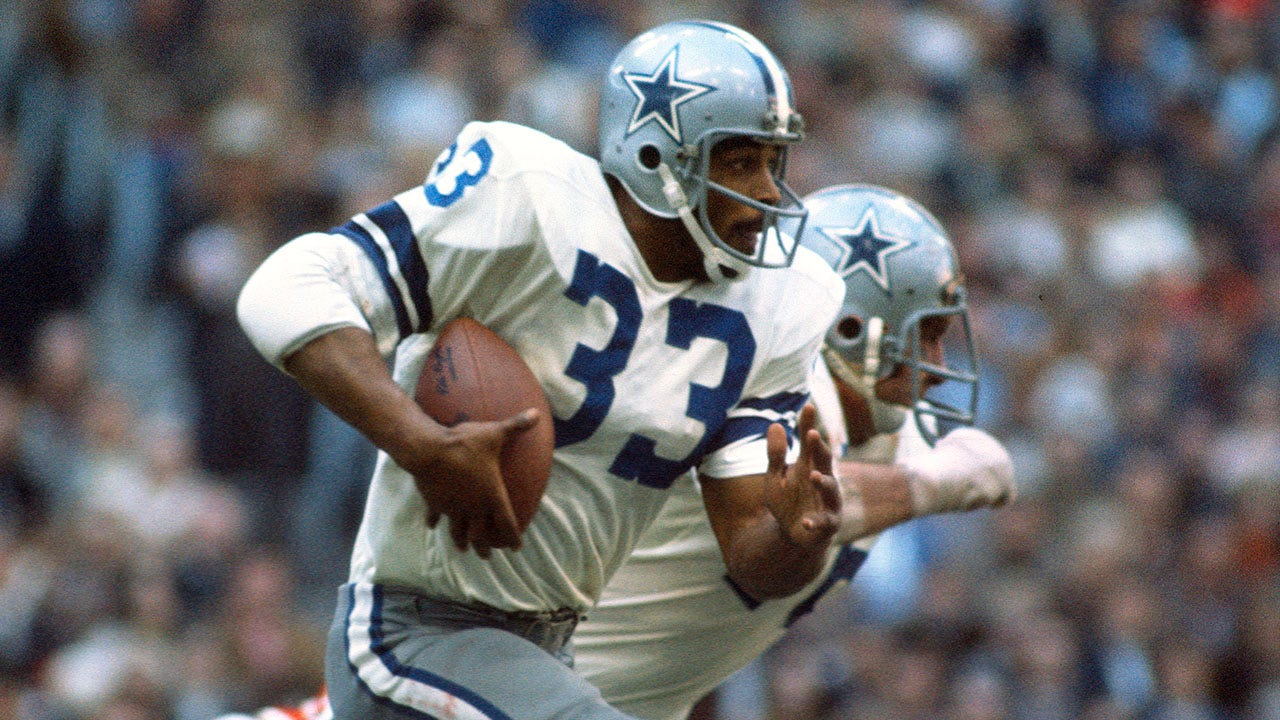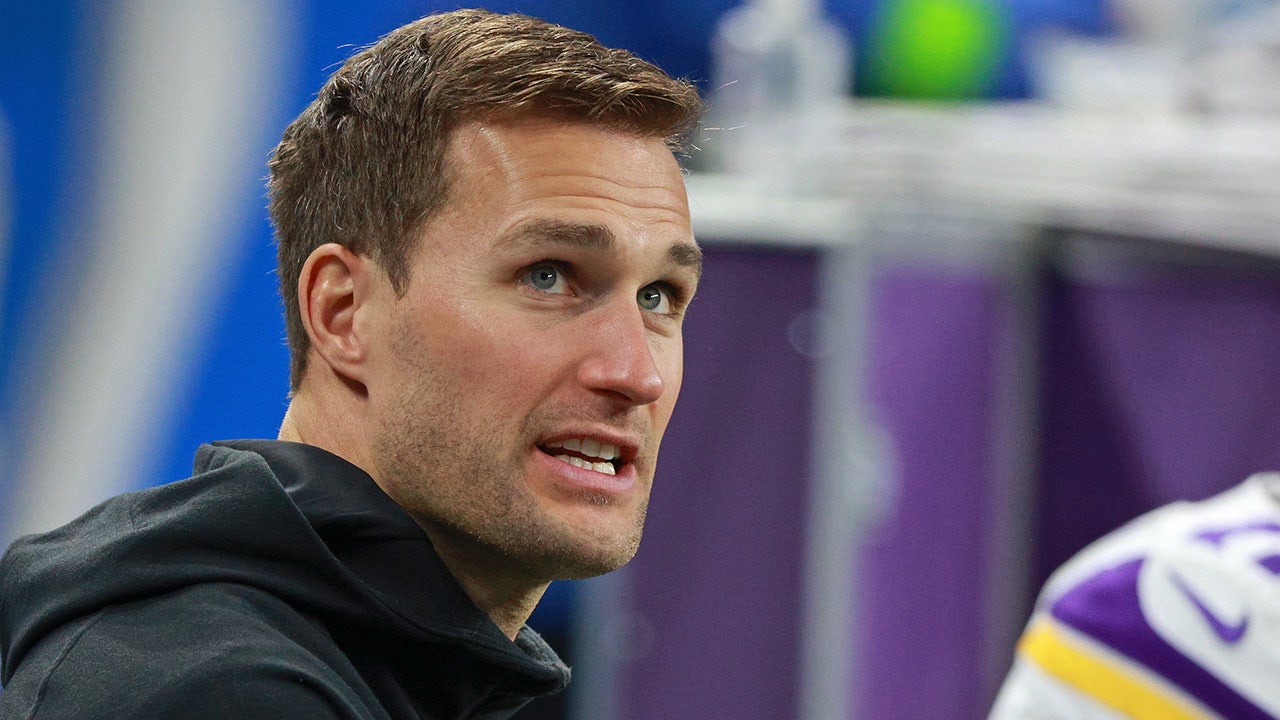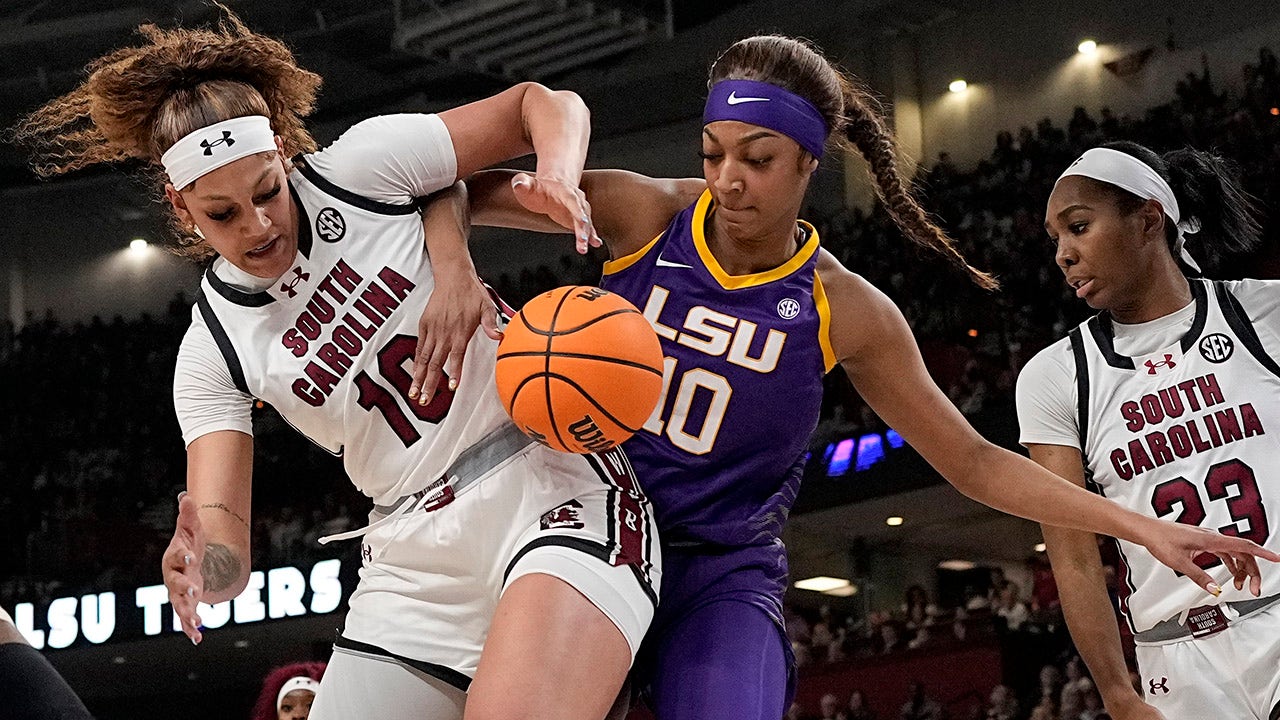HOMEWOOD, Ala. — The house Bucky McMillan grew up in, the one in the Birmingham suburbs where a new owner discovered 18 waterlogged basketballs buried beneath years of leaves in a ditch where they’d collected after running off the driveway, is only three miles from his office at Samford University. The Shades Valley YMCA, where McMillan played his first organized basketball, is less than half a mile away. Mountain Brook High School, where McMillan starred as a player and then built the Spartans into a national prep power as head coach, is six miles away. Birmingham-Southern College, where McMillan walked on, earned a starting job and helped the program transition from NAIA to Division I, is eight miles away.
From Samford, where he’s won three straight Southern Conference Coach of the Year awards and the last two regular-season league titles and has already become the most accomplished coach in school history after just four years, McMillan can be at the scene of almost every important moment from his 40 years of life in 15 minutes or less. His story is as rare as it is remarkable: He’s achieved a lifetime’s worth of success by middle age, without ever really leaving home.
“It’s so fun, because you get to see the happiness of all those who were with you along the way,” McMillan says. “Everybody gets to share in it. It becomes like a hobby for people around here, like a bunch of old friends got together and said, ‘Hey, let’s do something really cool. Let’s make Samford a top-25 team.’”
The strangest thing about McMillan’s story is that seemingly no one involved ever stopped to ask: Is this actually going to work? Not when he became his high school alma mater’s junior varsity coach at 22 or when he became its varsity coach at 24 or when he landed a Division I head-coaching job at 36 without ever having worked in college. People just kept putting him in charge and trusting that he would win, because he always has.
McMillan won a Dizzy Dean World Series as an all-star shortstop in fourth grade, led Mountain Brook to its first state semifinal as an all-state point guard in high school, coached a top-10 AAU team while he was still in college, coached Mountain Brook to seven state championship games and five state titles in eight years, then jumped straight to D1 two years later and introduced a whole new audience to his frenetic style of play: Bucky Ball. He’s won 20-plus games the last three seasons, and this year’s Bulldogs have the best record in program history (26-5). They’re hoping to earn their first NCAA Tournament bid in 24 years by winning the SoCon tournament, which begins Friday.
“It’s a great story and a great hire,” Auburn coach Bruce Pearl says. “Those of us in this state knew what a brilliant coach and program developer he was, so it’s absolutely no shock what he’s done, but kudos to Samford for respecting somebody who was right there in the community and having the courage to hire a high school coach.”
A bigger program will inevitably try to lure away McMillan for more money and the promise of a bigger stage, sooner than later. It would be an easy sell to most people in that position, and there might ultimately be an offer McMillan just can’t refuse. The way he sees it, though, he can still get anywhere from right here.
“I knew at an early age that if you want to excel at something, you’ve really got to be all-consumed on that mission to do it, that people who have their hands in a million different jars aren’t as good as someone with a singular focus,” McMillan says. “You’ve got to consider where you want to live, where your roots are and who you want to do this with. If you build your brand in one place, your network grows exponentially, and when you have a grassroots movement that is building something with the right people in the right place, it can become something so special it gains national attention.
“You can make the thing most people feel like they have to go somewhere else to get.”
That sort of dream, to turn a private Baptist school with 6,000 students into the Gonzaga of the South, would require considerable resources. And here come the resources, sauntering over to speak to McMillan after a recent practice.
Gary Cooney is a multimillionaire insurance broker who played on one of Samford’s all-time great football teams in the 1970s. His last name is on buildings all over campus, including the football fieldhouse and Cooney Hall, which houses the business school and opened in 2015 thanks largely to a $12.5 million gift from its namesake. Cooney has known McMillan since he was a baby, coached him in youth baseball and shared a beer with him the day he buried his son, McMillan’s childhood friend.
So when Samford was looking for a new coach in 2020, coming off nine losing seasons in the previous 11 years, even though athletic director Martin Newton had already locked in on McMillan as his top choice, Cooney left nothing to chance. “If you hire him, I’ll give you a solid six-figure gift to get it started,” he told the school’s administration. “Because this one is personal to me.”
Cooney looks and talks like Buddy Garrity, the caricature of an overzealous booster on “Friday Night Lights,” the high school football drama in which the slogan — Texas Forever — could be tweaked for McMillan. In Cooney’s eyes, Bucky Ball belongs in Birmingham. Now and always. When talk of another program poaching him arises, Cooney, who this season offered the school another “six-figure bounty” to help McMillan set the all-time attendance record, bristles.
“Shame on us,” he says, “if we don’t figure out how to retain one of the brightest talents in the country, who is one of us. We have an incredible opportunity here, and so does Bucky, because this is where he wants to be. This is where he grew up. It’s where his family and his friends are. It’s where his high school buddies are in the stands every game and their children now come to his basketball camps. It’s where he can go down to Otey’s Tavern after a big win and celebrate with people he’s known his entire life.
“Tell me that’s not kind of a dream come true. It’s Mayberry on steroids.”
So what exactly is Bucky Ball?
It’s a full-court-pressing, breakneck-running, 3-point-shooting blur of activity. “Play fast, play defense and give it 100 percent or get the hell out,” says Bucky McMillan Sr., the coach’s father. “That’s Bucky Ball, and you can’t beat it.” (Bucky is a nickname that has stuck to both generations, even though their given names are Henry Ward McMillan, the II and III. Bucky works better for slogans, his father says.)
Samford ranks fifth nationally in both offensive pace and 3-point percentage, sixth in turnovers forced. The Bulldogs play 10 guys at least 13 minutes per game and nobody more than 25 minutes, as McMillan overwhelms opponents with fresh legs churning at maximum effort. Everybody on the roster can shoot it, too. Eleven players have made more than 10 3-pointers; seven are shooting better than 40 percent from deep.
“In one word, I would just say fun,” McMillan says of his system. “You want to find the most fun way to win, because recruits want to play this way and fans want to watch it.”

Samford averages 86.9 points per game loves to push the pace with players like Rylan Jones. (John Byrum/ AP)
Alabama coach Nate Oats, who swears by a similar 3s-and-layups offensive style that has brought him two SEC championships, sees a lot of himself in McMillan. Oats was a high school coach who became a Division I head coach after just two years as a college assistant. What impresses him most is that, while anyone could decide to play with pace, space and fire away, “you can tell Bucky is a really sharp guy who understands the why and, more importantly, how to get the best shots within that approach.”
It’s hardly surprising to learn that McMillan grew up idolizing Rick Pitino. He figures he’s watched every game Pitino coached at Louisville, plus all the footage he could find of Pitino’s time at Kentucky. Every year, he shows his team the Mardi Gras Miracle, when Pitino’s Wildcats erased a 31-point deficit with 15:34 to play at LSU. That team attempted 37 3-pointers and made 15 … in 1994, which was a highly unusual approach to basketball in those days.
“He was just so innovative,” McMillan says, “and the thing that I’ve always loved about Pitino is he was his own guy. He wasn’t afraid to try things just because they were unconventional. He was one of the first coaches to let his teams shoot a bunch of 3s and press the whole game.”
McMillan is equally unafraid to coach his way. He figures some of that conviction is simply a product of his atypical path. Almost every head coach spends at least a little time cutting his teeth as an assistant, somewhere along the way. Having never worked for anyone else, though, the buck has always stopped with Bucky. He started his career with low enough stakes, coaching youth basketball while he was still in high school, that he could experiment with style until he was certain of what worked and what didn’t.
“Most people get their first head-coaching job and suddenly they’re in front of 10,000 people having never called a timeout,” McMillan says. “What, are they going to try trapping missed shots? They’re afraid they’ll look like an idiot if it doesn’t work. But I was fortunate to have enough time to try things out so that I can believe completely in what we’re doing now.”
That is the most Pitino-like trait Newton saw in McMillan when he interviewed him for this job. His father, C.M. Newton, coincidentally, hired Pitino at Kentucky.
“I remember my dad talking about that ‘it factor’ with Rick,” Newton says. “Bucky is the same way. It was fascinating to hear him talk about the way his mind works, the combination of analytics and instincts, and how he knew exactly how he wanted to play and recruit and build a program. He’s never wavered. It’s one of the things that attracted me to him, and it attracts recruits to him, how that confidence just oozes from him.”
Just because he’s self-assured doesn’t mean McMillan is without mentors. His staff includes Duane Reboul, his college head coach, a 400-game winner with two NAIA national titles, who came out of retirement to join Samford as a special assistant. Mitch Cole, who once taught Bucky at Birmingham-Southern youth camps and later coached him there as a member of Reboul’s staff, is McMillan’s associate head coach.
When he decided to be a full-time pressing team, Reboul was just the guy to help.
“Back when we were playing that way, I’d have other college coaches come to me and say, ‘I want to press this year. How do we do it?’” Reboul says. “I would always say to them, ‘You gotta have it in your blood. You can’t dabble. Because you’re going to give up baskets, and you’ve got to have the stomach to stick with it.’ There just aren’t many coaches who can play that way, because most of them want complete control of every possession. Bucky is willing to let his players make decisions based on what he’s taught them and trust that the coaching is done not on game day, but in practices.”
Asked to summarize his protege turned boss, Reboul recites a famous Muhammad Ali quote: He who is not courageous enough to take risks will accomplish nothing in life.
How many other coaches would’ve signed 5-foot-8, 140-pound Dallas Graziani from Division II national champion Nova Southeastern merely because they play a similar style as Samford? The number is even fewer — maybe zero? — who would’ve sent Graziani out for the opening tip against 7-foot-4 Purdue star Zach Edey (with a plan to not jump, rather immediately trap and try to steal the ball, which almost worked). McMillan announced the plan in advance and the school made a series of funny social media videos about it before the game.
The most-anticipated jump ball in school history‼️
📺 Big Ten Network
📱/💻 https://t.co/M84e2qjwby
📊 https://t.co/DoQkDkzuZP#BuckyBall | #AllForSAMford pic.twitter.com/e3UmCHvcUd— Samford Men’s Basketball (@SamfordMBB) November 6, 2023
How many other coaches have everyone on the team shoot 3s, even the ones who show up with no history of being able to do so?
“If you can make a free throw, you can make a 3, and if you can’t make a free throw, you can’t play anyway,” McMillan says, before launching into a monologue about how every time the college 3-point line moves back, percentages dip for a season and then go right back up to where they were. “It’s just repetition. And if you’re really committed to playing this way, if you understand that 3s and layups and free throws are most optimal, now you’re just teaching your players to hit a driver, pitching wedge and putter. Isn’t that easier than learning a 9-iron, 8-iron, 7-iron, 6-iron, 5-iron, 4-iron, all the way down?”
He says all these things with a tone that adds an unspoken word: obviously. Total belief, not that his way is the only way, just that his way works. Obviously. Samford won 17 straight games and 23 of 24 at one point this season. Wherever McMillan goes, unprecedented winning follows. Getting the right players has a lot to do with that, and of course he has a tried and true method for picking them.
McMillan describes how a recruit can prove himself worthy of Bucky Ball: “Ball is shot, he crashes the glass, he can’t get it but tries to dive on it, gets up, picks up his man full-court, goes to the other end and hawks the ball the whole time, ball comes off the rim, he blocks out, jumps over three people, gets knocked down again, gets off the floor in half a second, bats it to the other end of the floor, sprints down, tries to jump on it, gets the basketball, shot fakes, could lay it up but drops it to a teammate for a layup and then starts denying the guy on the press as hard as he can. That’s going to catch my attention.”
Oh, is that all?
“What is that right there I just described?” McMillan says. “An elite competitor, somebody who freakin’ hates to ever not do their best and not impact winning. That’s what I’ll always look for.”
Jeff Lloyd first played on a basketball team with McMillan in second grade. He won that Dizzy Dean World Series with him 30 years ago this summer. They were on teams together through high school, and now Lloyd brings his own children to Bucky’s camps and to Samford games. There’s a section of seats in a corner of the Pete Hanna Center, where the Bulldogs come out of the tunnel, that is often full of children Lloyd brings to the games — either the rec team he coaches or another group of local hoopers.
Lloyd knows other programs are coming for his old friend, but he’s not convinced McMillan will leave any time soon. “If you look at Bucky’s life, he’s a Birmingham boy to his core. Should out-of-state teams look at him? One hundred percent. I just know where his roots are, and this community is rallying around Bucky, as it always has, and the momentum is there to grow and build this program and make it a perennial top-25 team that’s competing for tournament slots every year. Selfishly, that’s what I want to see happen.”
He isn’t alone.
Cooney refuses to believe Samford can’t be the one to make him an offer he can’t refuse.
“If an offer comes up that’s better than what we can do, then I’ll be his biggest supporter wherever he goes,” Cooney says, “but I just don’t think this community is going to let him leave. I think this community will realize that this happens once in a lifetime and say, ‘Hey, we can give this coach and his program what it needs.’ ”
Last season, Florida Atlantic made a stunning run to the Final Four. Then the Owls’ coveted young coach, Dusty May, and the entire roster made an even more stunning decision to stay put — even if it was only for one more year.
Mark Few could’ve left Gonzaga, a Jesuit school with about 5,000 undergrads in Spokane, Wash., for a brand-name program years ago. Instead, he’s spent 35 years as a grad assistant, assistant and head coach turning those Bulldogs into a nationally respected brand themselves. Sometimes you can get where you’re going from right where you are, and few understand that better than McMillan.
“If we’re willing to invest in the program at a high level, there’s no reason we can’t do what those other schools have done,” he says. “There’s no reason we can’t build it here. And all things being equal, I’d love to do it in my hometown. So would all the people that started this with me. How great would that be one day, when we make that run, to say, ‘Hey, we talked about it, and we did it.’”
(Top photo of Bucky McMillan: Courtesy of Samford Athletics)






